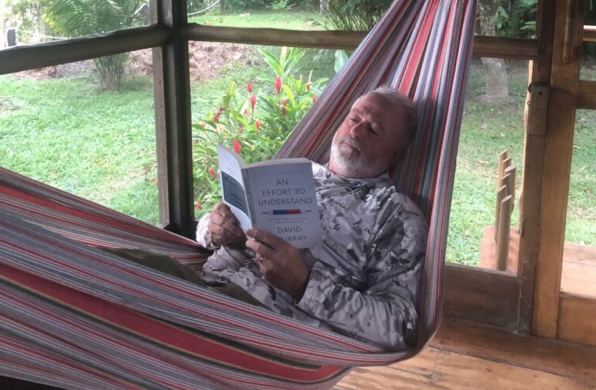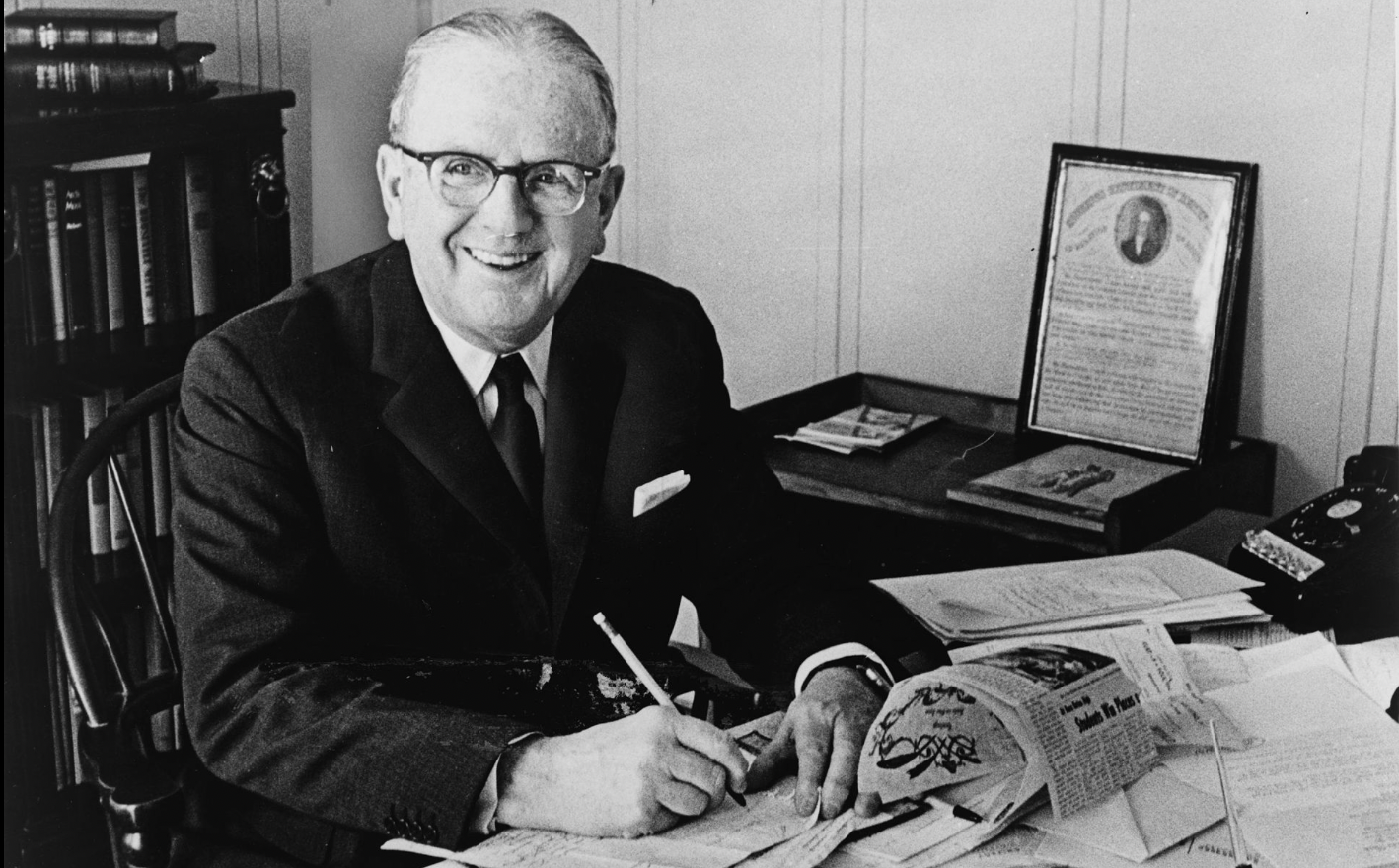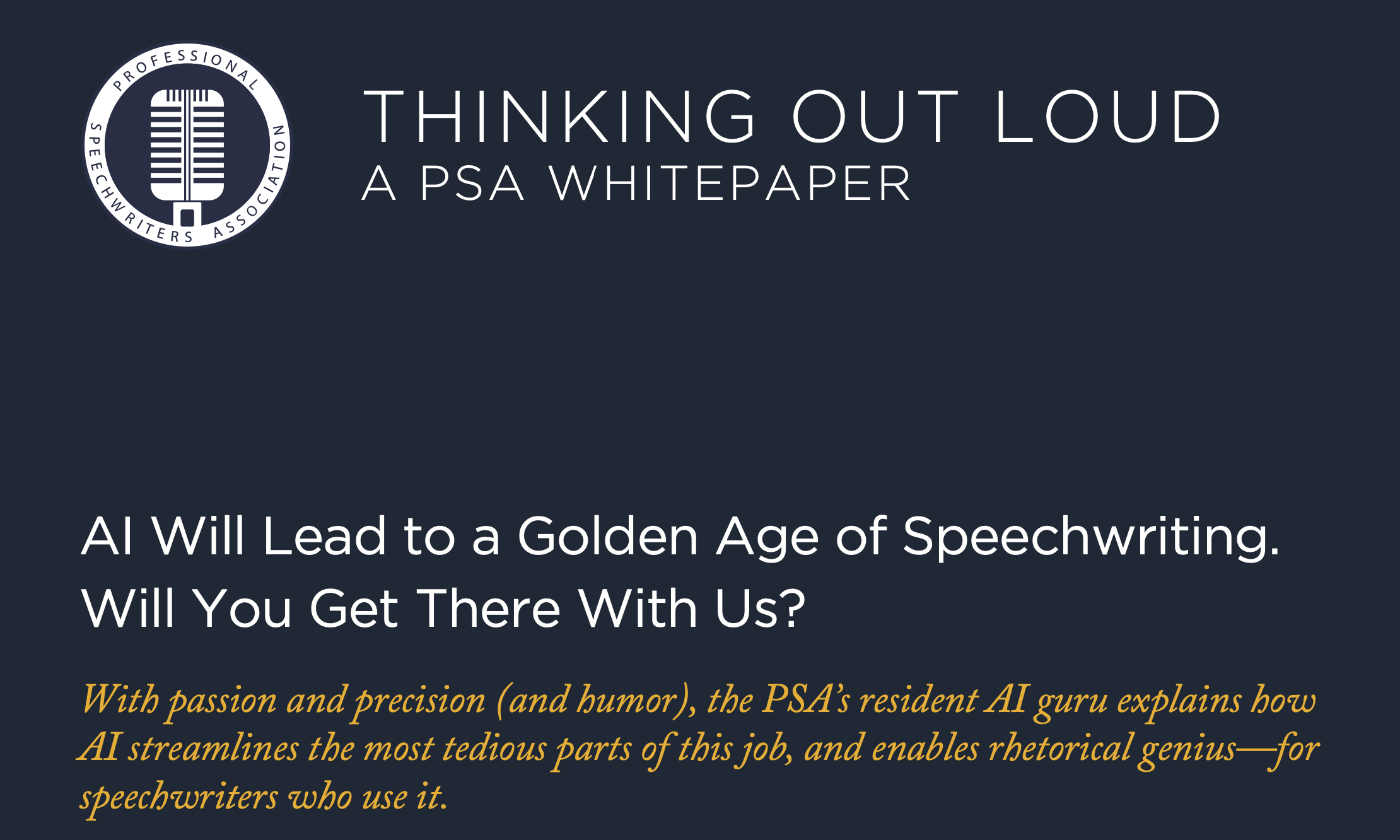Speechwriters Are Serious Readers, Still
July 25, 2023
A group of higher-ed speechwriters recently shared their summer reading lists. Wow.
The emphasis in leadership communications the last decade or so has been on strategic thinking, not writerly erudition. So I was pleased to see last week when an email group of higher-ed speechwriters took to their Google group like a clew of bookworms to share with one another what they’ve been reading lately.
Loyola Marymount University scribe Christina Brooks kicked things off with a confession: “One of the best pieces of advice I absorbed at the PSA conference was to schedule time during the workday to read (books, not emails or Teams messages). Since I’m absolutely terrible at following good advice, I’m scheduling time during my vacation to read. So, what are y’all reading? I’m almost done with “Cultish: The Language of Fanaticism” by Amanda Montell, which has been a fun read but hits a little close to home (synergy! circle back! bandwidth!).”
To conclude her invitation, Brooks smilingly offered “bonus points for anyone reading a book that would be banned in Florida or Texas.”
She didn’t have to wait long.
Speaking of Florida, University of Florida speechwriter Aaron Hoover suggested, “In these dog days of summer, My Dog Tulip by J.R. Ackerley—fun, short, oddball, touching and utterly fresh despite being published in 1956—and in my opinion the best-ever-book about a person’s companionship with their dog.”
Abby Breitstein writes speeches for the president of Cornell, and she reads widely: “Recently finished: Grace by Cody Keenan, The Tender Bar by JR Moeringer, Free Speech on Campus by Chemerinsky/Gillman, Silicon Values by York. Paperback in progress: The Centre by Siddiqi; audiobook in progress, Spare (by Moeringer again, beautifully read by Prince Harry). Recently reread: Jane Eyre, because my younger daughter read it and left it lying around so, well, obviously.”
MIT speechwriter Martha Eddison says she’s lately feeling “Stuck in the Overwhelm.” She’s been using fiction to visit other times and places. “I found these novels in the last two years, each one vivid, absorbing, gorgeously written and closely observed: O Caledonia by Elspeth Barker (Skip the introduction as it doesn’t help); Mating by Norman Rush; Night Boat to Tangier by Kevin Barry; Player Piano by Kurt Vonnegut; Hamnet by Maggie O’Farrell; Americanah by Chimamanda Ngozi Adichie. And another all-time favorite, though not a novel: The Peregrine by J.A. Baker.”
Harvard Medical School scribe Allison Eck agreed with Eddison about Americanah, and said, “I’ve similarly been drawn to fiction lately (reading George Saunders’ Lincoln in the Bardo right now, plus Intimacies by Katie Kitamura and The Wall by Marlen Haushofer), but my non-fiction reads include Range by David Epstein and Permission to Speak by Samara Bay, a speaker from the PSA Executive Communications Summit this year!” (FYI, Bay will also give two sessions at the PSA World Conference in October, and every conference participant will receive a copy of her book. —ed.)
Harvard Kennedy School speechwriter Nora Delaney is a big Saunders fan too. “Honestly, anything by Saunders I love—his short story collections Tenth of December and Liberation Day are good reads as is A Swim in a Pond in the Rain, a book of essays on classic Russian stories. Recently I discovered Claire Keegan and zipped through some of her short, well-crafted books. Small Things Like These was especially good. I also recently read and really loved Barbara Kingsolver’s Demon Copperhead. (Now I’ve got to read Charles Dickens’ David Copperfield, which inspires Kingsolver’s book.) For nonfiction, I’m currently reading Sarah Bakewell’s At the Existentialist Cafe, about the existentialist philosophers (I cannot even pretend to wrap my head around Heidegger though), since I liked her newer book, Humanly Possible, which covers the history of humanist thought. Keep the suggestions coming!”
“I love this thread so much that I logged in from vacation to read it!” wrote Kate Garry, who writes speeches at Notre Dame. “I’m adding a lot of these suggestions to my list. I just started Demon Copperfield by Barbara Kingsolver and it is compelling. I also enjoyed Trust by Hernan Diaz, Lucy by the Sea by Elizabeth Strout, Tomorrow, and Tomorrow, and Tomorrow by Gabrielle Zevin, and the audiobooks of memoirs by Ari Shapiro and Hannah Gadsby. For nonfiction, The Art of Gathering had me thinking about the many factors that influence the experience of and reception of a speech beyond the actual script and delivery of those words. Happy reading, friends!”
Emory University’s Matt Kivel wrote, “I’m reading Cervantes’ Exemplary Stories, which are not nearly as funny as Don Quixote. I also just finished reading Kraftwerk: Future Music From Germany and then I also just finished Do Not Sell at Any Price, which was absolutely fantastic. A weird dive into the psyche, and psychosis, of 78 record collectors.”
“Wow,” wrote Josh Piven, speechwriter to the provost of the University of Pennsylvania. “I was going to brag about getting through Mad Magazine but now, whew. Some heavy hitters. I thought Cervantes was a beer… I am currently halfway through The Sum of Us: What Racism Costs Everyone and How We Can Prosper Together by Heather Magee. While not exactly a beach read (unless you like crying in the sand) everyone should read it. Incredible and powerful. Next in the pile is Klara and The Sun by Ishiguro, since we can’t avoid talking about AI all the fn time. Then it will be back to dispiriting: Peter Beinart’s The Icarus Syndrome: A History of American Hubris. Just so I can be emotionally prepared for the 2024 election.
Josh Green writes for the president of Penn: “As though my to-read stack wasn’t towering enough…. 😉 Seriously though, thanks for all these. Adding the endorsed titles to my list. I just finished The Bridge on the Drina by Ivo Andric, who won the Nobel in 1961. Sheds light on the Gordian knot of culture, ethnicity, and empire in Eastern Europe. Vivid writing (and translation). Now on to the short stories of Breece D’J Pancake.”
“Josh, I was fascinated with Breece D’J Pancake in college, and not only because of his name,” wrote Jim Reische, communication consigliere to the president of Williams College—and the informal founder and host of this convivial little group. Reische seconded Martha Eddison’s recommendation of The Peregrine, and added, “It makes for an incredible pairing with Robert MacFarlane’s Landmarks (RM discusses The Peregrine in one chapter). Having read it, the world looks different in its wake.” Reische also recommended “Marlon James’ Dark Star trilogy, an incredible feat of imagination and language. Most of J.G. Ballard’s books, but especially The Drowned World. Svetlana Alexeyevich’s The Womanly Face of War and Zinky Boys. And finally, I’m slowly and happily browsing my way through Preaching with Sacred Fire: An Anthology of African American Sermons, 1750 to the Present. It’s a body of work outside of my personal and professional experience and deeply revelatory, excuse the pun.”
Postscript:
You might question the relevance, but my rapacious publisher would surely call me remiss if I failed to mention that this month the great oral communication guru Tim Pollard took my book, An Effort to Understand, on a trip to Machu Picchu and read it in a hammock, deep in the Amazon rain forest.

“What a great book,” Pollard wrote on LinkedIn upon his safe return. “Probably the best I’ve ever read on communication. Should be required reading for anyone who aspires to be a decent human being.” Cervantes, eat your heart out.






Where is this Google group for higher ed speechwriters? I’d love to be added to it.
Hey Daniel, I’ll have the keeper of that list, Jim Reische, reach out first chance he gets.